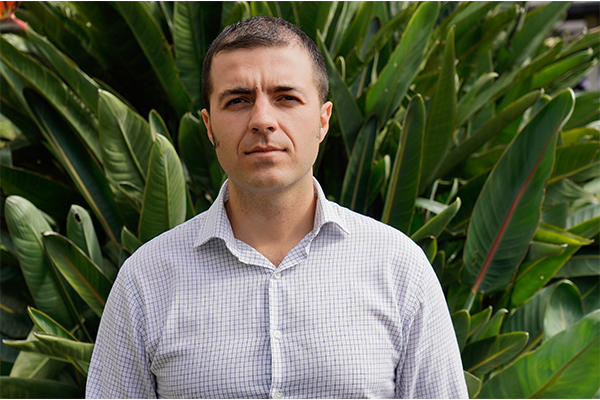Global fertiliser markets looking calmer in 2024, despite Israel-Hamas conflict uncertainty
After extreme market volatility and record-high prices in recent years, global fertiliser prices are expected to settle in 2024, despite uncertainty posed by the Israel-Hamas conflict as it currently stands, Rabobank says in a new report.
In its just-released Semi Annual Fertiliser Outlook, titled What is next? , the agribusiness banking specialist says while escalating tensions in the Middle East create some uncertainty in the outlook for fertiliser markets, the current impact for the food and agri sectors is manageable.
Report co-author, RaboResearch farm inputs analyst Vitor Pistoia said overall, farmers around the world may feel some negative impact due to potentially rising costs of energy and fertilisers, at the margin, as well as slightly lower import demand and prices for grains and oilseeds due to the Israel-Hamas conflict.
“However, if the conflict spreads to the broader Middle East/North African (MENA) region, impacts on fertiliser supply – as well as grain, meat, and dairy demand – could be notable,” he said.
The report says Israel is an important exporter of potash and phosphorus – in 2022 exporting six per cent of the world's potash and eight per cent of its phosphate fertilisers.
It remains to be seen how much of those trade volumes will be impacted in the coming months, Rabobank says.
The bank says the broader MENA region accounts for about 30 per cent of the world’s nitrogen fertiliser exports, more than 25 per cent of global mixed fertiliser exports, approximately 10 per cent of potassic fertilisers and almost half of the phosphatic fertiliser exports.

RaboResearch Farm Inputs Analyst, Vitor Pistoia
Affordability index
Mr Pistoia said, “while we are still some months away from 2024 – this year has been a much calmer year for the fertiliser market – and 2023 can be seen as a transition year, even with some remnants of all the market complications from 2022”.
The bank’s models indicate a recovery in global fertiliser usage in 2023, up by around three per cent, compared to the seven per cent drop in 2022.
For 2024, Mr Pistoia said the initial analysis suggests an increase in global fertiliser use of close to five per cent.
“All this is aligned with our affordability index which shows a much higher value than a year ago,” he said.
For New Zealand
Mr Pistoia said local fertiliser prices were significantly lower than a year ago, but this would not necessarily lead to increased fertiliser usage across New Zealand farms over coming months
“Farm margins are incredibly tight across the majority of New Zealand farming businesses due to lower commodity prices and ongoing elevated costs for other farm inputs – like fuel and feed – as well as higher interest costs.” he said.
“And a key question is how much the recent drop in the New Zealand dollar will offset the reduced cost of fertiliser in farmers’ budgets.
“When this lower dollar is combined with the recent crude oil hikes, how much is left in those budgets to increase fertiliser application rates?”
Rabobank New Zealand is a part of the global Rabobank Group, the world’s leading specialist in food and agribusiness banking. Rabobank has more than 120 years’ experience providing customised banking and finance solutions to businesses involved in all aspects of food and agribusiness. Rabobank is structured as a cooperative and operates in 40 countries, servicing the needs of about 10 million clients worldwide through a network of close to 1000 offices and branches. Rabobank New Zealand is one of the country's leading agricultural lenders and a significant provider of business and corporate banking and financial services to the New Zealand food and agribusiness sector. The bank has 32 offices throughout New Zealand.
Media contacts:
David Johnston
Media Relations Manager
Rabobank New Zealand
Phone: 04 819 2711 or 027 477 8153
Email: david.johnston@rabobank.com
Denise Shaw
Head of Media Relations
Rabobank Australia & New Zealand
Phone: +612 8115 2744 or +61 2 439 603 525
Email: denise.shaw@rabobank.com
